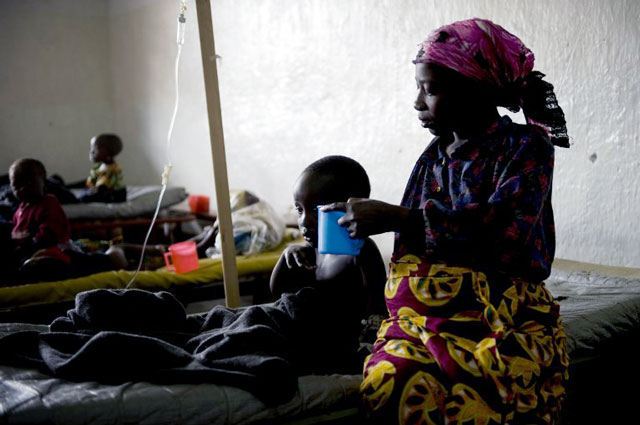
Kampala, Uganda | THE INDEPENDENT & AFP | Uganda’s Ministry of Health has confirmed an outbreak of cholera in refugee settlements in Hoima and Kyegegwa Districts a day after up to 26 deaths were reported after attacks of acute diarrhoea.
The deaths were recorded at the Kyangwali camp in Hoima close to Lake Albert and Kyaka II in Kyegegwa district. More than 27,000 Congolese have made the lake crossing this year, most of them arriving during a single week earlier this month.
According to results from the Central Public Health Laboratories, a total of five cases have been confirmed in the refugee settlements of Kyangwali in Hoima and Kyaka II in Kyegegwa district. Four cases have been confirmed in Hoima and one in Kyegegwa.
“There is an active Cholera outbreak in refugee settlements in Hoima and Kyegegwa Districts. Investigations conducted by the Ministry of Health indicate that the refugees from the Democratic Republic of Congo (DRC) contracted the infection from their places of origin and along the way to Uganda,” the Ministry of Health said in a statement.
According to the statement, a total of 535 suspected cases with 22 deaths had been confirmed from Kyangwali refugee settlement with 360 people discharged. Most of the deaths occurred along the way or in the community. In Kyaka II, 23 suspected cases are being followed up.
The ministry has establishment of cholera treatment centres at the Kyangwali and Kyaka II refugee settlement and is screening all refugees at entry points for early detection.
Cholera is a serious acute infectious disease characterized by watery diarrhea, vomiting and kills a person within a few hours. It can be spread through eating and drinking foods contaminated with faeces of an infected person. Other factors responsible for its spread include; poor personal hygiene especially not washing hands after visiting the latrines, using contaminated water, poor sanitation as occurs in open defecation, eating food prepared under unhygienic conditions, and drinking contaminated water.
Tens of thousands of people have fled an upsurge of fighting in the east of the Democratic Republic of Congo this year, many of them arriving weak and unwell at Ugandan camps that are struggling to accommodate them.
More than 27,000 Congolese have made the lake crossing this year, most of them arriving during a single week earlier this month.
Thousands more are gathered on the Congolese side, the UNHCR said last week. They hope to escape fresh fighting between rival communities in Ituri province.
Further south, over 15,000 more have fled overland into Uganda from North Kivu where the Congolese army is battling a militia group.
In total, violence in eastern Congo has uprooted 200,000 in the last two months, according to aid workers.
 The Independent Uganda: You get the Truth we Pay the Price
The Independent Uganda: You get the Truth we Pay the Price


